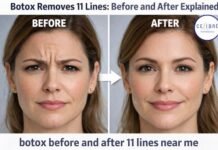Hearing health is essential for maintaining communication, cognitive function, and overall well-being. As we age, exposure to loud noise, oxidative stress, and nutritional deficiencies can contribute to hearing loss. The right combination of Hearing Loss Supplements can support auditory function, protect against damage, and promote ear health.
Many people turn to dietary supplements to help preserve their hearing and enhance auditory processing. Scientific research highlights the impact of specific nutrients on inner ear function, nerve signaling, and inflammation reduction. When incorporated into a healthy lifestyle, these vitamins and herbs may help prevent hearing decline and support long-term ear health.
This article explores the best vitamins and herbs for hearing support. Whether looking to prevent hearing deterioration or improve auditory function, these natural remedies can help. Let’s delve into the most powerful nutrients for maintaining optimal hearing.
- Vitamin B12: Supporting Nerve Health
Vitamin B12 is essential for maintaining nerve function, including the auditory nerves that transmit sound signals to the brain. Deficiency in B12 has been linked to hearing loss and tinnitus.
Natural sources of vitamin B12 include fish, dairy, eggs, and lean meats. However, many people, especially older adults, may struggle with absorption. Supplementing with B12 can improve nerve health and enhance hearing function.
- Magnesium: Protecting Against Noise-Induced Hearing Loss
Magnesium plays a crucial role in protecting the delicate structures of the inner ear. It helps prevent damage caused by loud noise exposure by reducing oxidative stress and improving blood flow to the cochlea.
Foods rich in magnesium include spinach, nuts, seeds, and whole grains. Since deficiencies are common, supplementation can support auditory health and reduce the risk of noise-induced hearing loss.
- Zinc: Enhancing Inner Ear Function
Zinc is a key mineral for immune support and cellular repair, both of which are critical for maintaining hearing health. Studies suggest that zinc may help reduce the severity of tinnitus and support overall auditory function.
Oysters, beef, pumpkin seeds, and legumes are good dietary sources of zinc. For those with a deficiency, taking a zinc supplement may help support inner ear health and reduce inflammation.
- Ginkgo Biloba: Improving Blood Circulation to the Ears
Ginkgo biloba is a powerful herb known for its ability to improve blood circulation, including to the auditory system. Enhanced blood flow can help nourish the inner ear and protect against age-related hearing decline.
This herb is commonly taken in supplement form and may also help with tinnitus by increasing oxygen supply to the ear structures.
- Alpha-Lipoic Acid (ALA): Fighting Oxidative Stress
Alpha-lipoic acid (ALA) is a potent antioxidant that helps combat oxidative damage in the auditory system. It supports mitochondrial function and protects against free radical damage, which contributes to hearing loss.
ALA is found in foods such as spinach, broccoli, and organ meats. However, supplementation can provide higher concentrations that may be beneficial for hearing health.
- N-Acetyl Cysteine (NAC): Preventing Hearing Damage
N-Acetyl Cysteine (NAC) is a precursor to glutathione, a key antioxidant that protects the ear from damage caused by noise exposure and toxins. Studies indicate that NAC can help prevent noise-induced hearing loss by neutralizing free radicals.
NAC supplements are widely used for their protective effects on ear health, particularly for those exposed to high noise levels.
- Coenzyme Q10 (CoQ10): Supporting Mitochondrial Function
Coenzyme Q10 (CoQ10) is an antioxidant that plays a vital role in cellular energy production. It helps maintain the health of the cochlea and auditory nerve cells, preventing age-related hearing loss.
Foods such as fish, nuts, and whole grains provide CoQ10, but supplementation ensures higher levels for those with hearing concerns.
- Folate (Vitamin B9): Preventing Age-Related Hearing Loss
Folate is essential for reducing homocysteine levels, which can impair blood flow to the ear. Research suggests that folate deficiency is linked to age-related hearing loss.
Leafy greens, citrus fruits, and legumes are rich in folate. Supplementing with folic acid may help preserve auditory function and delay hearing decline.
- Vitamin D: Strengthening the Ear Bones
Vitamin D is crucial for bone health, including the tiny bones in the middle ear that play a role in hearing. Low vitamin D levels have been associated with hearing impairment and otosclerosis, a condition affecting the ear bones.
Sunlight exposure, fatty fish, and fortified dairy products are sources of vitamin D. Supplements can help maintain optimal levels and support overall ear health.
- Omega-3 Fatty Acids: Reducing Inflammation
Omega-3 fatty acids possess strong anti-inflammatory properties that can help protect against hearing loss. They support blood circulation and help maintain the structure of the auditory cells.
Fatty fish like salmon, flaxseeds, and walnuts are rich in omega-3s. Regular supplementation can provide additional benefits for hearing health.
Final Words
Protecting and supporting hearing health naturally is possible with the right combination of vitamins and herbs. These nutrients aid in preventing damage, reducing inflammation, and enhancing auditory function. Incorporating them into a balanced diet can make a significant difference in long-term ear health.
While supplements offer added benefits, maintaining a healthy lifestyle, protecting ears from excessive noise exposure, and regular check-ups with an audiologist remain crucial. Before starting any new supplement, consulting a healthcare professional is advisable. Prioritizing these natural remedies can lead to improved auditory health and better hearing longevity.
FAQs
- Which vitamin is best for hearing health?
Vitamin B12, folate, and vitamin D are among the most effective for hearing support. - How does magnesium help with hearing loss?
Magnesium protects against noise-induced damage and improves blood flow to the inner ear. - Can ginkgo biloba improve hearing?
Yes, ginkgo biloba enhances blood circulation to the ears, potentially improving auditory function. - Is CoQ10 beneficial for hearing loss?
CoQ10 supports mitochondrial health and may help prevent age-related hearing decline. - How do omega-3 fatty acids support hearing?
Omega-3s reduce inflammation and help maintain healthy auditory cells. - Can zinc supplements help with tinnitus?
Zinc supports inner ear function and may reduce the severity of tinnitus symptoms.




